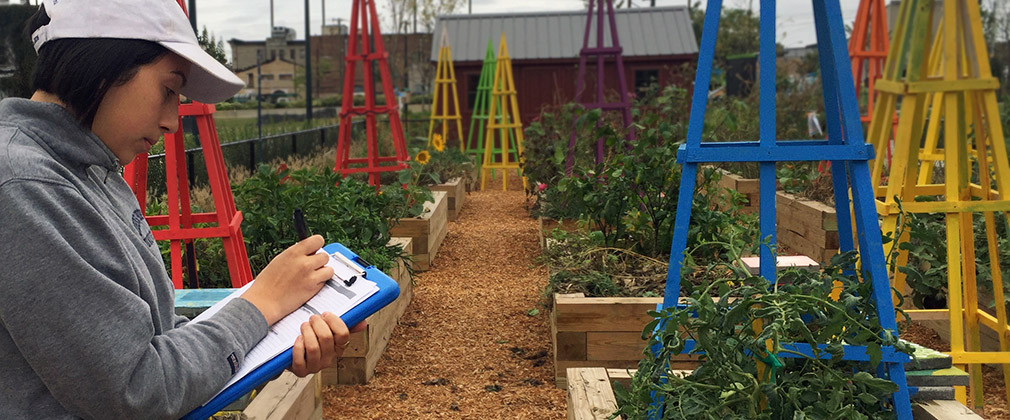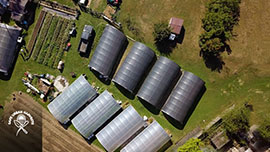Safe Urban Harvests Study

We frequently hear questions about the safety of Baltimore’s soils and urban-grown produce. The Center conducted the Safe Urban Harvests Study to investigate potential contamination risks associated with urban agriculture in Baltimore City.
During the 2017 growing season, researchers surveyed 104 farms and gardens in Baltimore City to learn about their growing practices and tested their soil, irrigation water, and produce for harmful metals. For comparative purposes, the researchers also collected and analyzed conventional and organic produce from grocery stores and farmers markets.
The study found that, with rare exceptions, urban farmers and gardeners can continue growing safely in Baltimore City. This report summarizes the findings, and provides guidance on ways to reduce exposures to contaminants in urban agriculture.
For the accompanying peer-reviewed scientific manuscripts about the findings, see:
- The Safe Urban Harvests Study: A Community-Driven Cross-Sectional Assessment of Metals in Soil, Irrigation Water, and Produce from Urban Farms and Gardens in Baltimore, Maryland. Environmental Health Perspectives, 2021
- Characteristics and growing practices of Baltimore City farms and gardens. Urban Forestry & Urban Greening, 2021
Community collaborators:
- Baltimore City Office of Sustainability
- Community Greening Resource Network
- Farm Alliance of Baltimore City
- University of Maryland Extension -- Baltimore City
Laboratory collaborators:
- U.S. Department of Agriculture, Agricultural Research Service, Adaptive Cropping Systems Laboratory
- Department of Environmental Health & Engineering, Johns Hopkins Bloomberg School of Public Health
- Land Remediation & Technology Division, US Environmental Protection Agency
Videos supported by the Lipitz Public Health Policy Award:
The Lipitz Public Health Policy Award supports collaborations between researchers and policymakers to translate research results into policy. The award supported the study team in working with the Baltimore Office of Sustainability to evaluate and revise Baltimore City’s Soil Safety Policy based on study findings. Accompanying videos were developed to share how the policy was revised, a summary of study results, and best practices for minimizing exposures to soil contaminants for urban growers in Baltimore and other cities.
- Baltimore City Soil Safety Policy: What you need to know (video)
- Safe Urban Harvests Study: Overview of results (video)
- Best practices for growing safely in urban soils (video)
Additional resources:
- General recommendations for reducing contact with harmful metals in urban soils
- Guide to testing soil for heavy metals
- Examples of anonymized reports shared with individual sites describing soil and water results and produce results
- FAQ: Safety of soils and compost for sale and how they are regulated in MD
- Methods: How samples were collected, analyzed, and interpreted
- Meet the Safe Urban Harvests Baltimore study team
- Grant and assistance opportunities for Baltimore community gardens and urban farms
For questions about the study, please contact Keeve Nachman at knachman@jhu.edu.
You can follow us on Twitter using the hashtag #safeurbanharvests.
Related news:
Report: Analysis of Baltimore City’s Urban Farms and Gardens Finds Safe Levels of Metals at Vast Majority of Sites
Study analyzed samples from 104 farms and gardens in Baltimore City and found low levels of lead and other contaminants; report offers guidance about potential exposures.
Learn More